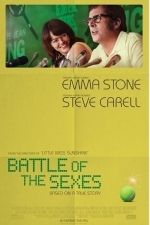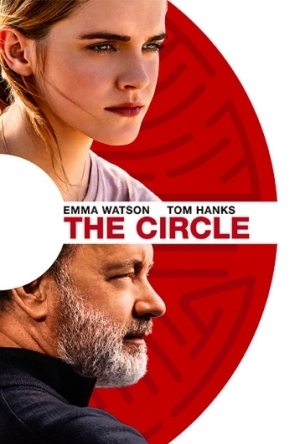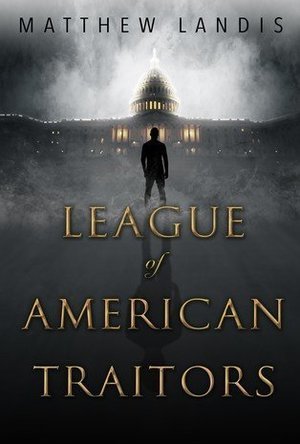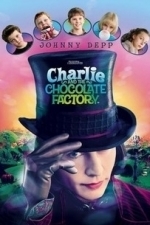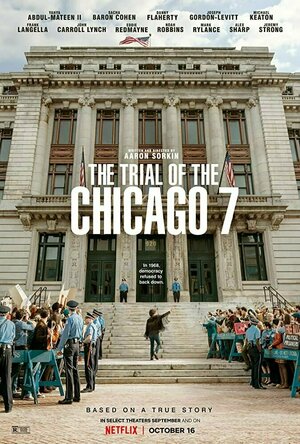Search

Canada's History Magazine
News and Magazines & Newspapers
App
Discover Canadian history as you’ve never seen it before - the stuff with the guts and glory, the...
Bob Mann (459 KP) rated Battle of the Sexes (2016) in Movies
Sep 29, 2021
Tennis and sex, but without the grunting.
Here’s a good test of someone’s age…. ask the question “Billie-Jean?”. Millennials will probably come back with “Huh?”; those in their 30’s or 40’s might come back with “Michael Jackson!”; those older than that will probably reply “King!”.
“Battle of the Sexes” (which I just managed to catch before it left cinemas) tells the true-life story of US tennis star Billie-Jean King (Emma Stone, “La La Land“). The year is 1973 and Billie-Jean is riding high as the Number 1 female tennis player. She is a feminist; she is married (to hunk Larry – no not that one – King played by Austin Stowell (“Whiplash“, “Bridge of Spies“)); …. and she is also attracted to women, not something she has yet acted on. That all changes when her path crosses with LA-hairdresser Marilyn (Andrea Riseborough, “Birdman“, “Oblivion”).
But this is a side story: the main event is a bet made by aging ex-star Bobby Riggs (Steve Carell, “Foxcatcher“); that – even at his age – as a man he could beat the leading female tennis player of the day.
The film is gloriously retro, starting with the old-school 20th Century Fox production logo. And it contains breathtakingly sexist dialogue by writer Simon Beaufoy (“Everest“, “The Full Monty”). Surely men couldn’t have been so crass and outrageous in the 70’s? Sorry ladies, but the answer is yes, and the film is testament to how far women’s rights have come in 50 years.
This is a tour de force in acting from both Emma Stone and Steve Carell, particularly the latter: a scene where Carell tries to re-engage with his estranged wife (Elisabeth Shue, “Leaving Las Vegas”) is both nuanced and heart-breaking. Stone’s performance is also praiseworthy, although it feels slightly less so as it is an impersonation of a (relatively) well-known figure: this is extremely well-studied though, right down to her strutting walk around the court which I had both forgotten and was immediately again reminded of.
One of my favourite movie awards are the Screen Actor’s Guild (SAG) “cast” awards that celebrate ensemble performances, and here is a film that should have been nominated (it unfortunately wasn’t). Andrea Riseborough; Natalie Morales (as fellow tennis player Rosie Casals); comedian Sarah Silverman (“A Million Ways to Die in the West“), almost unrecognisable as the brash publicist Gladys Heldman; Bill Pullman as LTA head Jack Kramer; the great Alan Cumming (“The Good Wife”) as the team’s flamboyant, gay, costume designer; Lewis Pullman as Riggs’s son Larry; Jessica McNamee (magnetic eyes!) as King’s Australian tennis nemesis Margaret Court. All bounce off the leads, and each other, just beautifully.
Cinematography by Linus Sandgren (“La La Land“) and editing by Pamela Martin (“Little Miss Sunshine”) unite to deliver one of the most sexually charged haircuts you are ever likely to see on the screen. For those put off by this aspect of the storyline, the “girl-on-girl action” is pretty tastefully done and not overly graphic: it’s mostly “first-base” stuff rather than “third-base”!
“What a waste of a lovely night”. Marilyn (Andrea Riseborough) and Billie-Jean (Emma Stone) get serious.
Directed with panache by the co-directors of the 2006 smash “Little Miss Sunshine” – Jonathan Dayton and Valerie Faris – all in all it’s a delight, especially for older audiences who will get a blast of nostalgia from days when sports were still played at a slightly more leisurely pace… and definitely without the grunting.
“Battle of the Sexes” (which I just managed to catch before it left cinemas) tells the true-life story of US tennis star Billie-Jean King (Emma Stone, “La La Land“). The year is 1973 and Billie-Jean is riding high as the Number 1 female tennis player. She is a feminist; she is married (to hunk Larry – no not that one – King played by Austin Stowell (“Whiplash“, “Bridge of Spies“)); …. and she is also attracted to women, not something she has yet acted on. That all changes when her path crosses with LA-hairdresser Marilyn (Andrea Riseborough, “Birdman“, “Oblivion”).
But this is a side story: the main event is a bet made by aging ex-star Bobby Riggs (Steve Carell, “Foxcatcher“); that – even at his age – as a man he could beat the leading female tennis player of the day.
The film is gloriously retro, starting with the old-school 20th Century Fox production logo. And it contains breathtakingly sexist dialogue by writer Simon Beaufoy (“Everest“, “The Full Monty”). Surely men couldn’t have been so crass and outrageous in the 70’s? Sorry ladies, but the answer is yes, and the film is testament to how far women’s rights have come in 50 years.
This is a tour de force in acting from both Emma Stone and Steve Carell, particularly the latter: a scene where Carell tries to re-engage with his estranged wife (Elisabeth Shue, “Leaving Las Vegas”) is both nuanced and heart-breaking. Stone’s performance is also praiseworthy, although it feels slightly less so as it is an impersonation of a (relatively) well-known figure: this is extremely well-studied though, right down to her strutting walk around the court which I had both forgotten and was immediately again reminded of.
One of my favourite movie awards are the Screen Actor’s Guild (SAG) “cast” awards that celebrate ensemble performances, and here is a film that should have been nominated (it unfortunately wasn’t). Andrea Riseborough; Natalie Morales (as fellow tennis player Rosie Casals); comedian Sarah Silverman (“A Million Ways to Die in the West“), almost unrecognisable as the brash publicist Gladys Heldman; Bill Pullman as LTA head Jack Kramer; the great Alan Cumming (“The Good Wife”) as the team’s flamboyant, gay, costume designer; Lewis Pullman as Riggs’s son Larry; Jessica McNamee (magnetic eyes!) as King’s Australian tennis nemesis Margaret Court. All bounce off the leads, and each other, just beautifully.
Cinematography by Linus Sandgren (“La La Land“) and editing by Pamela Martin (“Little Miss Sunshine”) unite to deliver one of the most sexually charged haircuts you are ever likely to see on the screen. For those put off by this aspect of the storyline, the “girl-on-girl action” is pretty tastefully done and not overly graphic: it’s mostly “first-base” stuff rather than “third-base”!
“What a waste of a lovely night”. Marilyn (Andrea Riseborough) and Billie-Jean (Emma Stone) get serious.
Directed with panache by the co-directors of the 2006 smash “Little Miss Sunshine” – Jonathan Dayton and Valerie Faris – all in all it’s a delight, especially for older audiences who will get a blast of nostalgia from days when sports were still played at a slightly more leisurely pace… and definitely without the grunting.
Bob Mann (459 KP) rated The Circle (2017) in Movies
Sep 29, 2021
Social Media involvement in political manipulation? Don’t be ridiculous!
Set in the near future “The Circle” tells a horror story of the social media age involving an omnipotent American corporate, pitched somewhere between being Facebook-like and Google-like (note, lawyers, I just said “like”!) Emma Watson (“Beauty and the Beast“) plays young intern Mae who, partly through the aid of family friend Annie (Karen Gillan, “Guardians of the Galaxy“, “Doctor Who”) but mostly through her own aptitude, lands a foothold job in customer services for the company. With the lush corporate campus fast becoming home, Mae is quickly singled out as having “executive potential” by the charismatic CEO Bailey (Tom Hanks, “Bridge of Spies“) and his more taciturn sidekick Stenton (US comedian Patton Oswalt).
Progressively brainwashed into believing the company’s intrusive snooping (a favourite motto is “Secrets are Lies”) is all for ‘the greater good’, Mae champions the cause until a tragedy rocks her world and her company beliefs to the core.
Whenever I watch a film I tend to form my own opinion first before checking out what the ‘general public’ on IMDB think. In this case, I must confess to being a bit surprised at our divergence of views: a lot of people clearly hated this movie whereas I confess that I found it very entertaining. Certainly with the alleged role of Russia in influencing elections around the world via social media, the film is most certainly topical! Many reviewers seemed quite upset that Watson’s character is such a ‘doormat’, in that her views are so easily manipulated by the corporate machine. But not every woman – as indeed every man – can or should be a Joan of Arc style role model in every film: why should they be?
I actually found her indoctrination into “the Circle way” as quite convincing, especially a creepy scene where two corporate lackies (Cho Smith and Amir Talai) say that they’re not checking up on Mae’s social life, but…. Watson enjoys extending her post-Potter repertoire well, but the talented John Boyega (“Star Wars: The Force Awakens“) is completely wasted in his role as Ty; the Wozniak-like genious behind The Circle’s technology. The script gives him very little to do other than stand around and look grumpy.
A wasted John Boyega with Emma Watson.
The film is sad in being the last movie appearance of the great Bill Paxton (“Apollo 13”) who plays Mae’s sick father and who died of complications following heart surgery two months before the film’s release (the film is dedicated “For Bill”). Tragically, Mae’s mother in the film, actress Glenn Headly (“Dirty Rotten Scoundrels”) also died suddenly at the age of 62, also due to heart problems, a couple of months after the film’s release. It’s surprising the film doesn’t have a “curse of The Circle” tag on it.
The film was directed by James Ponsoldt, who also wrote the screenplay with novel-writer Dave Eggers (“Away We Go”). I particularly liked the on-screen use of captioning (posts) which was reminiscent to me of last year’s “Nerve“, a B-movie film I rated highly that also had a string social media theme.
While the ending of the film is a bit twee – a movie definition of “being hoisted by your own petard” – it’s overall a thought provoking piece sufficiently close to the truth as to where society is going to raise the hairs on your neck.
Progressively brainwashed into believing the company’s intrusive snooping (a favourite motto is “Secrets are Lies”) is all for ‘the greater good’, Mae champions the cause until a tragedy rocks her world and her company beliefs to the core.
Whenever I watch a film I tend to form my own opinion first before checking out what the ‘general public’ on IMDB think. In this case, I must confess to being a bit surprised at our divergence of views: a lot of people clearly hated this movie whereas I confess that I found it very entertaining. Certainly with the alleged role of Russia in influencing elections around the world via social media, the film is most certainly topical! Many reviewers seemed quite upset that Watson’s character is such a ‘doormat’, in that her views are so easily manipulated by the corporate machine. But not every woman – as indeed every man – can or should be a Joan of Arc style role model in every film: why should they be?
I actually found her indoctrination into “the Circle way” as quite convincing, especially a creepy scene where two corporate lackies (Cho Smith and Amir Talai) say that they’re not checking up on Mae’s social life, but…. Watson enjoys extending her post-Potter repertoire well, but the talented John Boyega (“Star Wars: The Force Awakens“) is completely wasted in his role as Ty; the Wozniak-like genious behind The Circle’s technology. The script gives him very little to do other than stand around and look grumpy.
A wasted John Boyega with Emma Watson.
The film is sad in being the last movie appearance of the great Bill Paxton (“Apollo 13”) who plays Mae’s sick father and who died of complications following heart surgery two months before the film’s release (the film is dedicated “For Bill”). Tragically, Mae’s mother in the film, actress Glenn Headly (“Dirty Rotten Scoundrels”) also died suddenly at the age of 62, also due to heart problems, a couple of months after the film’s release. It’s surprising the film doesn’t have a “curse of The Circle” tag on it.
The film was directed by James Ponsoldt, who also wrote the screenplay with novel-writer Dave Eggers (“Away We Go”). I particularly liked the on-screen use of captioning (posts) which was reminiscent to me of last year’s “Nerve“, a B-movie film I rated highly that also had a string social media theme.
While the ending of the film is a bit twee – a movie definition of “being hoisted by your own petard” – it’s overall a thought provoking piece sufficiently close to the truth as to where society is going to raise the hairs on your neck.
Kyera (8 KP) rated League of American Traitors in Books
Feb 1, 2018
The premise of this book is much more intriguing than its actual execution. Jasper is the descendant of Benedict Arnold, the most notorious traitor in American history. After the death of both of his parents, Jasper learns that there is more to his world than he ever knew. He learns that for hundreds of years, the descendants of both the heroes and villains from American history have been on opposing sides. The heroes' descendants, who call themselves the Sons of Liberty, challenge the descendants of the villains to a duel when they come of age. Unbeknownst to Jasper, his father was searching for a way out of the duel for his son. His untimely death leads Jasper down a path that forces him to question everything he's ever known.
I would like to mention that I was provided with an uncorrected e-galley to review this book. The fact that I was provided with the galley didn't affect my review, but the quality of the galley certainly influenced my enjoyment of the book. There were a number of grammatical or spelling errors throughout and that's something that pulls me out of the story. That is just a personal problem with the book and one I hope will not be present in the book when it is released on August 8th.
As a huge fan of history, I was incredibly intrigued by the premise of this book. It was sold as a mash-up of Hamilton and National Treasure - and who doesn't love those two things? It wasn't quite as fast-paced and thrilling as the premise would lead you to believe, but it is enjoyable.
I wish there was more character development in the novels because at times it was difficult to understand each character's motivations. They might have a complete change in perspective or opinion and it wasn't adequately explained leaving the reader questioning what was happening. There were so many characters in the book, many of which were quite prevalent that I understand that it probably wasn't possible to develop them all. That's just not feasible when writing a book, but I do think that the story would have benefitted greatly had there been just a bit more development.
The world that the author built was intriguing as he was able to blend authentic U.S. history in with his more dramatic narrative. Of course, settling one's qualms via a duel is a bit dramatic but he managed to raise the stakes. His characters' lives are on the line if they are not successful and yet the entire organization's framework could be altered if they are.
The plot of the book follows the course of American history with traitors and spies, secrets and betrayals, love and heartbreak. There are pacing issues with the book as it has moments that drag and others that seem to jump forward without enough context. There are some scenes that seem unnecessary to the plot and could be shorted to give more opportunities for character development. Overall, I feel that it is a good debut novel that could have been improved by culling extraneous scenes and delving more deeply into the world and characters.
Although it suffers from pacing issues and underdeveloped characters - it is still an entertaining read. I would recommend it to fans of history and action/adventure books, as it melds elements of both into a novel about the heroes and traitors of American history (and their descendants). There is a lot of violence in the book, but as it is not graphic I would not hesitate to allow a YA/teen reader to pick up this book. If you're a fan of historical fiction or action/adventures then you should definitely check out this book!
I would like to mention that I was provided with an uncorrected e-galley to review this book. The fact that I was provided with the galley didn't affect my review, but the quality of the galley certainly influenced my enjoyment of the book. There were a number of grammatical or spelling errors throughout and that's something that pulls me out of the story. That is just a personal problem with the book and one I hope will not be present in the book when it is released on August 8th.
As a huge fan of history, I was incredibly intrigued by the premise of this book. It was sold as a mash-up of Hamilton and National Treasure - and who doesn't love those two things? It wasn't quite as fast-paced and thrilling as the premise would lead you to believe, but it is enjoyable.
I wish there was more character development in the novels because at times it was difficult to understand each character's motivations. They might have a complete change in perspective or opinion and it wasn't adequately explained leaving the reader questioning what was happening. There were so many characters in the book, many of which were quite prevalent that I understand that it probably wasn't possible to develop them all. That's just not feasible when writing a book, but I do think that the story would have benefitted greatly had there been just a bit more development.
The world that the author built was intriguing as he was able to blend authentic U.S. history in with his more dramatic narrative. Of course, settling one's qualms via a duel is a bit dramatic but he managed to raise the stakes. His characters' lives are on the line if they are not successful and yet the entire organization's framework could be altered if they are.
The plot of the book follows the course of American history with traitors and spies, secrets and betrayals, love and heartbreak. There are pacing issues with the book as it has moments that drag and others that seem to jump forward without enough context. There are some scenes that seem unnecessary to the plot and could be shorted to give more opportunities for character development. Overall, I feel that it is a good debut novel that could have been improved by culling extraneous scenes and delving more deeply into the world and characters.
Although it suffers from pacing issues and underdeveloped characters - it is still an entertaining read. I would recommend it to fans of history and action/adventure books, as it melds elements of both into a novel about the heroes and traitors of American history (and their descendants). There is a lot of violence in the book, but as it is not graphic I would not hesitate to allow a YA/teen reader to pick up this book. If you're a fan of historical fiction or action/adventures then you should definitely check out this book!
LilyLovesIndie (123 KP) rated A Cast of Stones (The Staff and the Sword, #1) in Books
Nov 5, 2018
I received this book through the Goodreads First Read Giveaway and have to say, I am so glad it landed on my doormat!
The story is set in a medieval style alternative world, and follows the sudden changes taking place in the kingdom. Errol, an orphan and drunkard, embarks on a strange quest which sees him travel through the kingdom to the capital, meeting people who help and hinder him along the way, and becoming a completely different man in the process.
I have to admit, when I first started to get into this, the book gripped me from the first chapter, which I liked, but which also concerned me whether or not Carr could continue that momentum through out over 300 pages. Boy was I wrong! What a wonderfully written story this is! The plot is incredibly engaging and keeps you hooked all the way through, with delicate twists and turns, secrets and spies all up until the very last few words. In fact, so much happens, it's hard not to spoil any of it when writing a review!
Another huge positive in this book is the characters. Errol is a wonderfully written character, and the way Carr shows his development through the book is excellently done, delivering the changes so gradually that when he finally does flourish into the 'man for the job' (ambiguous I know, but I'm trying not to spoil it for those who are yet to read, and believe me, you will!) it feels sudden as you forget in that moment all the gradual changes that have taken place. The other characters are equally enjoyable and engaging, whether it's the dilemma and greed of caravan masters, mysterious members of The Watch, or even the various clergy you encounter throughout the book, all with ulterior motives and all keeping secrets with each other. They all help contribute something special to this tale, and although you would have thought it would be difficult to keep track of all the secrets and duplicities, but it's written in such a wonderful way, woven delicately together with immense skill, that it isn't hard at all, in fact, I found myself thinking about them after I put the book down and trying to pick it apart in my own head.
Something else that needs mentioning, is the flow of this book. It's brilliantly linked from one part to the next, and I found the action to be playing out like a film in my head. This is a book that even those with the least imagination could 'see' as they read, which is testament to the excellence of the writing. I have to be honest, I would love to see this made into a film series, as I think there is so much potential for a 'box office smash' and the characters would be great on the big screen, but that's just my opinion.
Overall, this is a truly wonderful start to what I imagine will become a best selling saga. The foundations are incredibly well written and are firmly set, with many outcomes possible, and I wouldn't be surprised if more characters were added to this eclectic mix. I honestly cannot recommend this book highly enough, it was thoroughly engaging and enjoyable, 'un-put-downable' and a book I will be pushing into the hands of friends all over the place and urging them to read! Carr is a fantastic new talent in this genre and someone I will most definitely be watching out for future releases from, especially this saga as I am on tenterhooks to discover the destiny of the kingdom! Well done Patrick Carr, a fabulous piece of writing that, I think, will stand the test of time, now when can we get our hands on the next instalment?
The story is set in a medieval style alternative world, and follows the sudden changes taking place in the kingdom. Errol, an orphan and drunkard, embarks on a strange quest which sees him travel through the kingdom to the capital, meeting people who help and hinder him along the way, and becoming a completely different man in the process.
I have to admit, when I first started to get into this, the book gripped me from the first chapter, which I liked, but which also concerned me whether or not Carr could continue that momentum through out over 300 pages. Boy was I wrong! What a wonderfully written story this is! The plot is incredibly engaging and keeps you hooked all the way through, with delicate twists and turns, secrets and spies all up until the very last few words. In fact, so much happens, it's hard not to spoil any of it when writing a review!
Another huge positive in this book is the characters. Errol is a wonderfully written character, and the way Carr shows his development through the book is excellently done, delivering the changes so gradually that when he finally does flourish into the 'man for the job' (ambiguous I know, but I'm trying not to spoil it for those who are yet to read, and believe me, you will!) it feels sudden as you forget in that moment all the gradual changes that have taken place. The other characters are equally enjoyable and engaging, whether it's the dilemma and greed of caravan masters, mysterious members of The Watch, or even the various clergy you encounter throughout the book, all with ulterior motives and all keeping secrets with each other. They all help contribute something special to this tale, and although you would have thought it would be difficult to keep track of all the secrets and duplicities, but it's written in such a wonderful way, woven delicately together with immense skill, that it isn't hard at all, in fact, I found myself thinking about them after I put the book down and trying to pick it apart in my own head.
Something else that needs mentioning, is the flow of this book. It's brilliantly linked from one part to the next, and I found the action to be playing out like a film in my head. This is a book that even those with the least imagination could 'see' as they read, which is testament to the excellence of the writing. I have to be honest, I would love to see this made into a film series, as I think there is so much potential for a 'box office smash' and the characters would be great on the big screen, but that's just my opinion.
Overall, this is a truly wonderful start to what I imagine will become a best selling saga. The foundations are incredibly well written and are firmly set, with many outcomes possible, and I wouldn't be surprised if more characters were added to this eclectic mix. I honestly cannot recommend this book highly enough, it was thoroughly engaging and enjoyable, 'un-put-downable' and a book I will be pushing into the hands of friends all over the place and urging them to read! Carr is a fantastic new talent in this genre and someone I will most definitely be watching out for future releases from, especially this saga as I am on tenterhooks to discover the destiny of the kingdom! Well done Patrick Carr, a fabulous piece of writing that, I think, will stand the test of time, now when can we get our hands on the next instalment?
Gareth von Kallenbach (980 KP) rated Charlie and the Chocolate Factory (2005) in Movies
Aug 14, 2019
It seems of late that every month Hollywood either releases or plans to release a remake of a classic film. This summer has spawned no less than 5 remakes of classic films or televisions shows and with box office receipts in decline, it would seem that the public is craving for something fresh.
Thankfully the Tim Burton remake of Charlie and the Chocolate Factory is not only a winner, but injects a much needed jolt of camp, charm, and wit into a late summer season that desperately needed it.
The film stars Johnny Depp as the mysterious candy maker Willie Wonka. Wonka has become a reclusive for two decades in order to protect his secret recipes from corporate spies and thieves.
As the film opens, a young boy named Charlie Bucket, (Freddie Highmore), returns home to his family shack, which he shares with his parents and four grandparents. As told via narration, that despite the poverty of his family, Charlie is a very lucky boy. Over their meager dinner of cabbage soup, Charlie’s grandfather (David Kelly) regales the family with tales of Willie Wonka and his exploits which he saw first hand while working in the factory decades earlier.
When Wonka resumed candy shipments after a hiatus the world was delighted, but many wondered who was making the candy as aside from shipping trucks, nobody was ever seen coming or going from the factory.
Such secrecy only added to the legend of Wonka as amazing candy creations continued to arrive in shops to the delight of customer’s world wide.
When it is announced that five golden tickets have been hidden inside candy bars world wide, and that the winners will be given a full day tour of the factory by Wonka himself, frenzy erupts across the globe as Wonka Bars are snatched up by a rabid public. Charlie dreams of getting one of the precious tickets, but his family’s meager income limits him to one bar a year on his birthday. Undaunted Charlie counts the days until his coming birthday, undaunted by the discovery of tickets around the globe.
When his efforts to get a ticket are daunted, and the fifth ticket is reported to be found, Charlie consoles himself by finding money in the street and purchases a Wonka Bar from the corner store. In the blink of an eye Charlie finds himself holding the last ticket when he learns that the last one reported found was a hoax.
Soon Charlie and his Grandfather are touring the magical factory complete with rivers of chocolate and edible candy forests in the company of the quirky Wonka and the fellow contest winners. What follows next is not going to be much of a surprise for those who have seen the 1971 version starring Gene Wilder or those who have read the novel by Roald Dahl, what is a surprise is how fresh and spirited this new version is. I was utterly charmed by the story and the effective pacing of the film.
Burton is a master of mixing visuals and fantasy and this time he not only excels, but he adds an effective touch of humanity to the fantasy which keeps the film from being lost in a see of color and effects.
Depp is brilliant as the eccentric Wonka as his mirth and camp, is underscored by equal amounts of fear and mistrust. The film is essentially a morality tale, but it never losses its focus or the charm by becoming preachy or drawn out. In a role that could easily have been mishandled, Depp soars and shows that he is one of the greatest actors of our generation.
Parents should note that there are a few moments in the film that may be a bit intense for the youngest of viewers, but that being said, the film is a true delight full of magic and fantasy that will delight young and old.
Thankfully the Tim Burton remake of Charlie and the Chocolate Factory is not only a winner, but injects a much needed jolt of camp, charm, and wit into a late summer season that desperately needed it.
The film stars Johnny Depp as the mysterious candy maker Willie Wonka. Wonka has become a reclusive for two decades in order to protect his secret recipes from corporate spies and thieves.
As the film opens, a young boy named Charlie Bucket, (Freddie Highmore), returns home to his family shack, which he shares with his parents and four grandparents. As told via narration, that despite the poverty of his family, Charlie is a very lucky boy. Over their meager dinner of cabbage soup, Charlie’s grandfather (David Kelly) regales the family with tales of Willie Wonka and his exploits which he saw first hand while working in the factory decades earlier.
When Wonka resumed candy shipments after a hiatus the world was delighted, but many wondered who was making the candy as aside from shipping trucks, nobody was ever seen coming or going from the factory.
Such secrecy only added to the legend of Wonka as amazing candy creations continued to arrive in shops to the delight of customer’s world wide.
When it is announced that five golden tickets have been hidden inside candy bars world wide, and that the winners will be given a full day tour of the factory by Wonka himself, frenzy erupts across the globe as Wonka Bars are snatched up by a rabid public. Charlie dreams of getting one of the precious tickets, but his family’s meager income limits him to one bar a year on his birthday. Undaunted Charlie counts the days until his coming birthday, undaunted by the discovery of tickets around the globe.
When his efforts to get a ticket are daunted, and the fifth ticket is reported to be found, Charlie consoles himself by finding money in the street and purchases a Wonka Bar from the corner store. In the blink of an eye Charlie finds himself holding the last ticket when he learns that the last one reported found was a hoax.
Soon Charlie and his Grandfather are touring the magical factory complete with rivers of chocolate and edible candy forests in the company of the quirky Wonka and the fellow contest winners. What follows next is not going to be much of a surprise for those who have seen the 1971 version starring Gene Wilder or those who have read the novel by Roald Dahl, what is a surprise is how fresh and spirited this new version is. I was utterly charmed by the story and the effective pacing of the film.
Burton is a master of mixing visuals and fantasy and this time he not only excels, but he adds an effective touch of humanity to the fantasy which keeps the film from being lost in a see of color and effects.
Depp is brilliant as the eccentric Wonka as his mirth and camp, is underscored by equal amounts of fear and mistrust. The film is essentially a morality tale, but it never losses its focus or the charm by becoming preachy or drawn out. In a role that could easily have been mishandled, Depp soars and shows that he is one of the greatest actors of our generation.
Parents should note that there are a few moments in the film that may be a bit intense for the youngest of viewers, but that being said, the film is a true delight full of magic and fantasy that will delight young and old.

eBook: The Art of War
Book and Education
App
Enjoy reading The Art of War ebook with auto-scrolling, day and night viewing modes, bookmarks,...
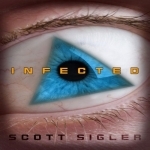
Infected by Scott Sigler
Podcast
Across America a mysterious disease is turning ordinary people into raving, paranoid murderers who...

Starbase Orion
Games
App
"The best 4X game currently available for mobile" - PocketTactics.com "This one is geek heaven" -...
BankofMarquis (1832 KP) rated The Trial of the Chicago 7 (2020) in Movies
Mar 28, 2021
Strong Ensemble Work
The good thing about my yearly exercise to check out all of the Oscar Nominated films in the "Major" Categories is that it forces me to watch films that are "one my list" but I just haven't gotten to them. THE TRIAL OF THE CHICAGO 7 is one of those types of films - an Aaron Sorkin Written and Directed project with a stellar cast about an important moment in United States History.
And...I'm glad I "forced myself" to watch this, for TRIAL OF THE CHICAGO 7 just might end up being my favorite film of 2020. It tells the tale of the trial of 8 (not 7 - they explain that difference in the film) leaders of revolutionary groups in the turbulent times that were the late 1960's in the United States and this film grasps the stakes that both sides are faced with in this historic time.
It all starts, of course, with the Writing and Directing of Aaron Sorkin (TV's THE WEST WING, A FEW GOOD MEN, MOLLY'S GAME) and it is some of his best work. Sorkin's writing style lends itself to this type of multi-player, multi-storyline story that all culminates into one story at the end. The words coming out of his character's mouths are insightful and true (if a bit over-blown for these characters) and they make you understand these characters - and their motivations - very well (whether the character is considered a "good" guy or a "bad" guy in this film).
The pedigree of Sorkin draws some wonderful actors to his works and THE TRIAL OF THE CHICAGO 7 is no different. Eddie Redmayne (Oscar Winner for THE THEORY OF EVERYTHING), Mark Rylance (Oscar Winner for BRIDGE OF SPIES), Ben Shenkman (Angels in America) and Joseph Gordon-Levitt (INCEPTION) all are at the top of their (considerably strong) games and Director/Writer Sorkin lets them all shine.
These 4 are good - but the next 6 are even better (yes...there is that many good to great performances in this film). Let's start with Jeremy Strong's (THE BIG SHORT) Jerry Rubin and Sacha Baron Cohen (BORAT) in his Oscar Nominated role of Abbie Hoffman. The embody the hippie culture of the '60's and bring gravitas and humor to the proceedings. Cohen earns his Oscar nomination by his "showey" role, but I would have been happy with just about any of the main Actor's being nominated.
Yahya Adbul-Mateen II (AQUAMAN) is powerful as Bobby Seale - the Black Panther Leader who is railroaded into this trial. He is supported by his friend, Fred Hampton - who I was glad to have learned more about in another Oscar nominated film this year, JUDAS AND THE BLACK MESSIAH.
Special notice needs to be made of a few veteran performers in this film - John Carrol Lynch (FARGO) has become a "mark of excellence" for me in films. Whenever he shows up in a project, I know that it will be worth my while for no other reason than his performance, and this film is no exception and Frank Langella EXCELS in the role of the Judge in the case, Julius Hoffman, and he is - beyond a doubt - the "bad guy" in this film, but he brings a humanity to his character and I "loved to hate" him. This performance stuck with me and I think that Langella deserved an Oscar nomination.
Finally...there is an extended cameo from a well known Hollywood performer (who I will not name, for I do not wish to spoil his appearance) as former Attorney General Ramsey Clark. This character was built up prior to his appearance as a powerhouse, and this actor did not disappoint.
This is a fantastic ensemble film that really transported me back to the '60's and the message at the heart of this film are as relevant today as back then. As I stated above, this is currently my favorite film of 2020, and it will only be replaced at the top by something very, very special
TRIAL OF THE CHICAGO 7 is currently streaming on Netflix and I highly recommend that you check it out.
Letter Grade: A
9 stars (out of 10) and you can take that to the Bank(ofMarquis)
And...I'm glad I "forced myself" to watch this, for TRIAL OF THE CHICAGO 7 just might end up being my favorite film of 2020. It tells the tale of the trial of 8 (not 7 - they explain that difference in the film) leaders of revolutionary groups in the turbulent times that were the late 1960's in the United States and this film grasps the stakes that both sides are faced with in this historic time.
It all starts, of course, with the Writing and Directing of Aaron Sorkin (TV's THE WEST WING, A FEW GOOD MEN, MOLLY'S GAME) and it is some of his best work. Sorkin's writing style lends itself to this type of multi-player, multi-storyline story that all culminates into one story at the end. The words coming out of his character's mouths are insightful and true (if a bit over-blown for these characters) and they make you understand these characters - and their motivations - very well (whether the character is considered a "good" guy or a "bad" guy in this film).
The pedigree of Sorkin draws some wonderful actors to his works and THE TRIAL OF THE CHICAGO 7 is no different. Eddie Redmayne (Oscar Winner for THE THEORY OF EVERYTHING), Mark Rylance (Oscar Winner for BRIDGE OF SPIES), Ben Shenkman (Angels in America) and Joseph Gordon-Levitt (INCEPTION) all are at the top of their (considerably strong) games and Director/Writer Sorkin lets them all shine.
These 4 are good - but the next 6 are even better (yes...there is that many good to great performances in this film). Let's start with Jeremy Strong's (THE BIG SHORT) Jerry Rubin and Sacha Baron Cohen (BORAT) in his Oscar Nominated role of Abbie Hoffman. The embody the hippie culture of the '60's and bring gravitas and humor to the proceedings. Cohen earns his Oscar nomination by his "showey" role, but I would have been happy with just about any of the main Actor's being nominated.
Yahya Adbul-Mateen II (AQUAMAN) is powerful as Bobby Seale - the Black Panther Leader who is railroaded into this trial. He is supported by his friend, Fred Hampton - who I was glad to have learned more about in another Oscar nominated film this year, JUDAS AND THE BLACK MESSIAH.
Special notice needs to be made of a few veteran performers in this film - John Carrol Lynch (FARGO) has become a "mark of excellence" for me in films. Whenever he shows up in a project, I know that it will be worth my while for no other reason than his performance, and this film is no exception and Frank Langella EXCELS in the role of the Judge in the case, Julius Hoffman, and he is - beyond a doubt - the "bad guy" in this film, but he brings a humanity to his character and I "loved to hate" him. This performance stuck with me and I think that Langella deserved an Oscar nomination.
Finally...there is an extended cameo from a well known Hollywood performer (who I will not name, for I do not wish to spoil his appearance) as former Attorney General Ramsey Clark. This character was built up prior to his appearance as a powerhouse, and this actor did not disappoint.
This is a fantastic ensemble film that really transported me back to the '60's and the message at the heart of this film are as relevant today as back then. As I stated above, this is currently my favorite film of 2020, and it will only be replaced at the top by something very, very special
TRIAL OF THE CHICAGO 7 is currently streaming on Netflix and I highly recommend that you check it out.
Letter Grade: A
9 stars (out of 10) and you can take that to the Bank(ofMarquis)
